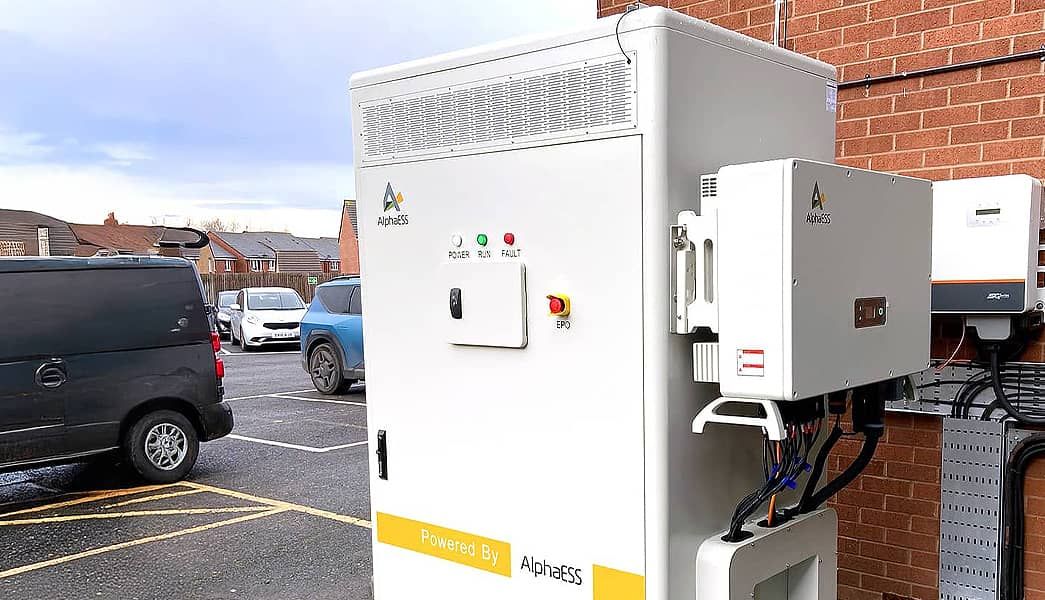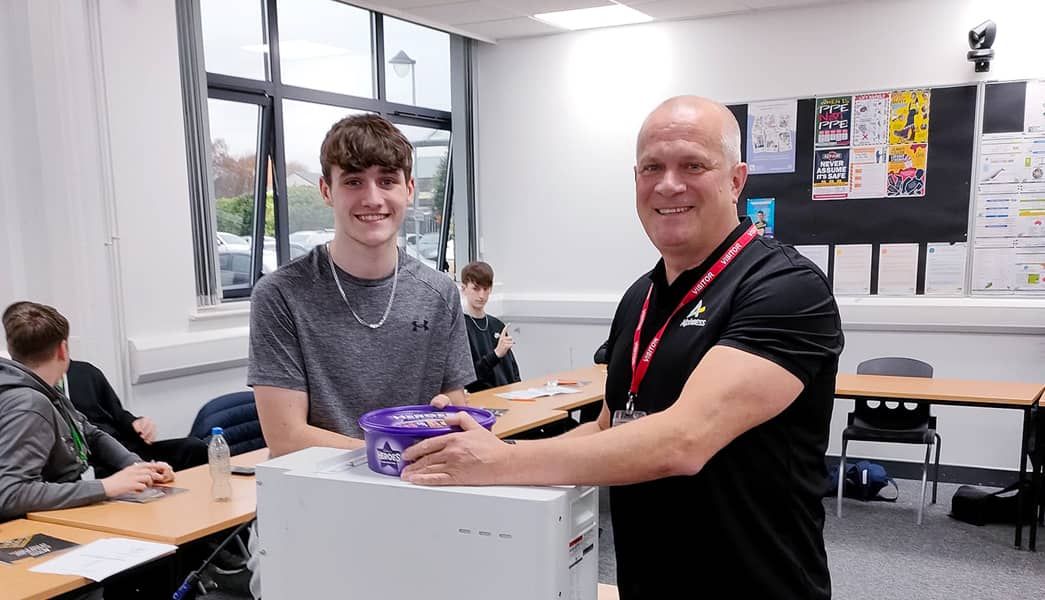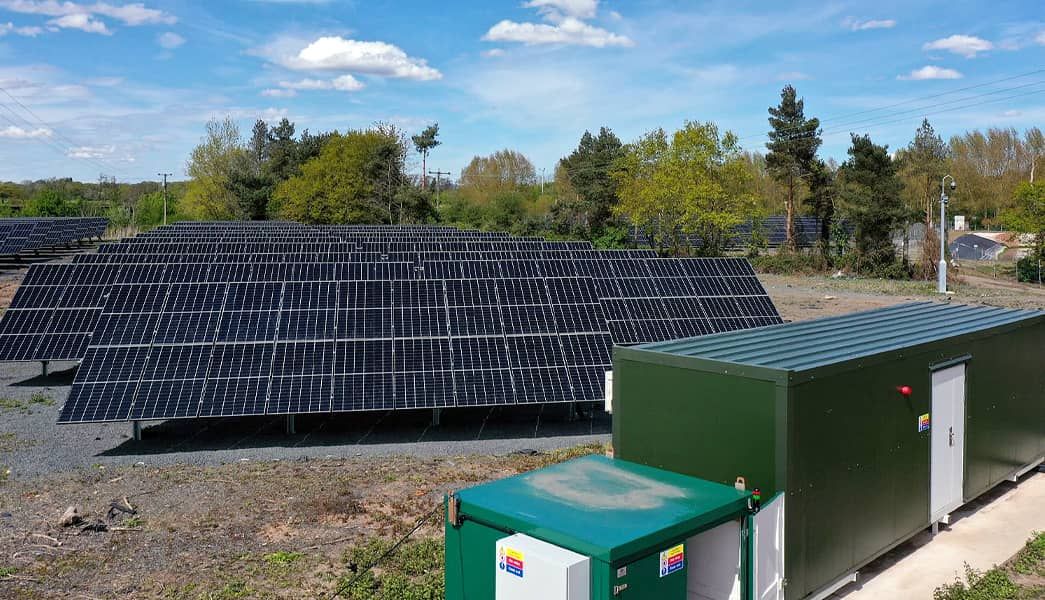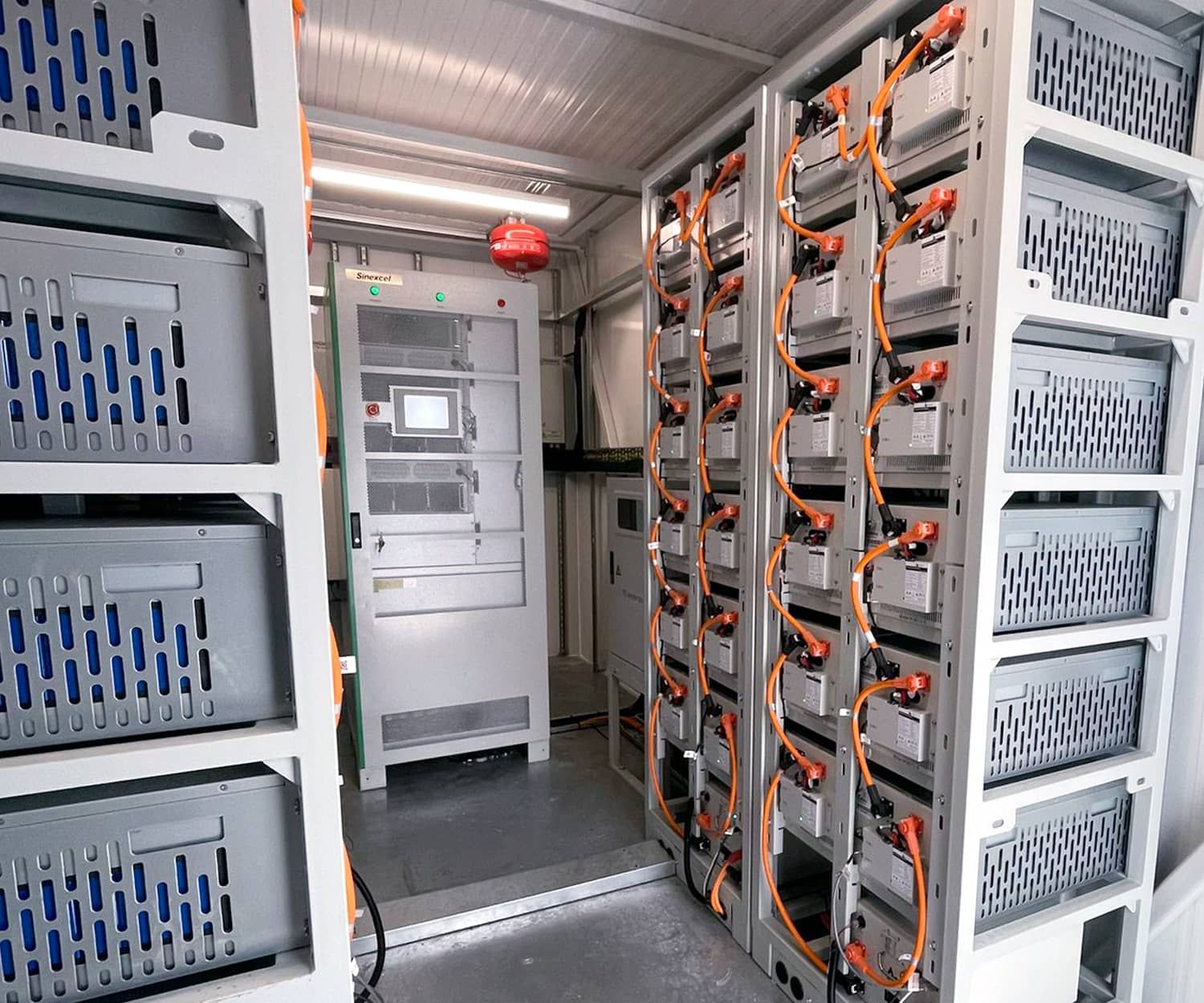
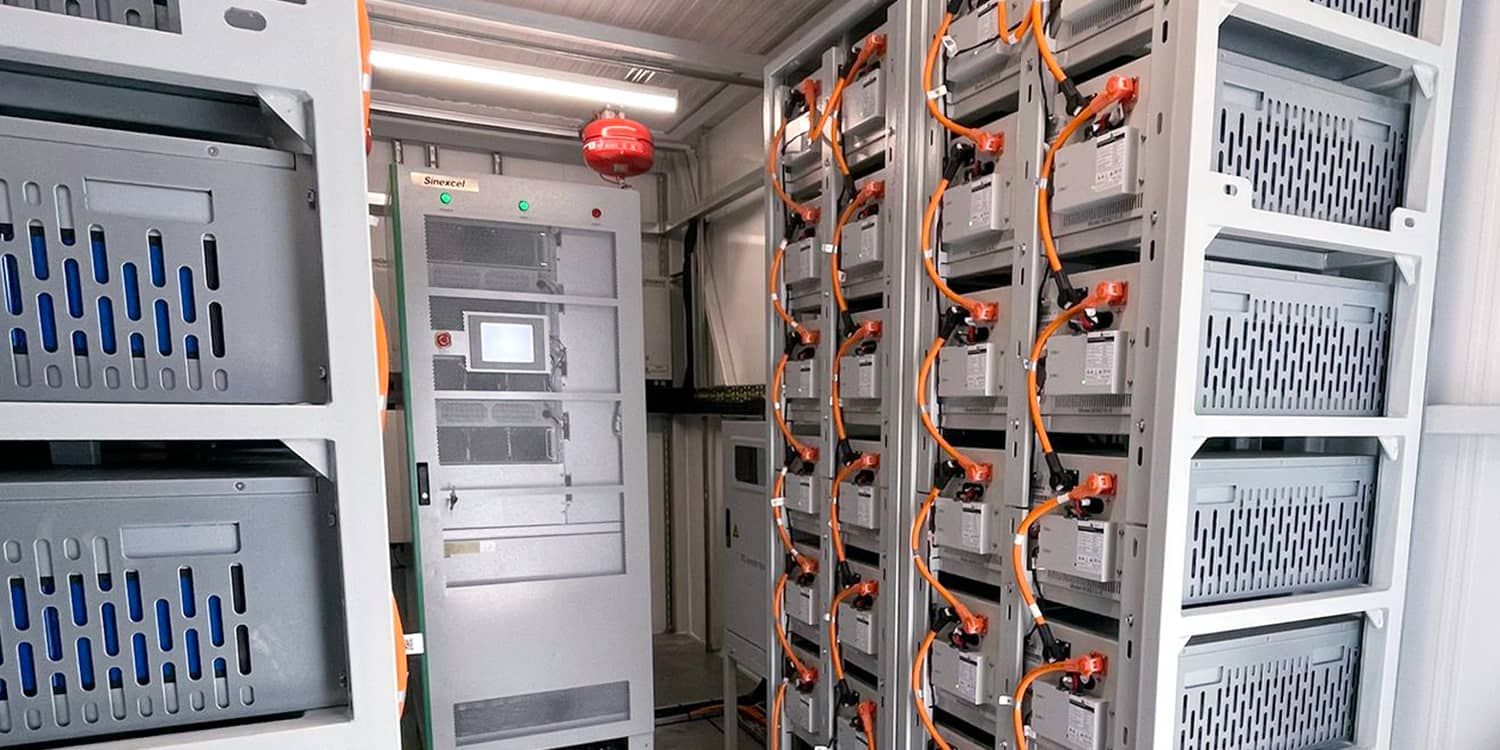
04. Exploring the Impact of Battery Storage on Farms: An Interview with Mike Bronson of Bravenhill

As commercial battery storage systems become increasingly vital in modern energy management, their application in agriculture has proven particularly beneficial.
Farmers are turning to companies like Bravenhill to install AlphaESS UK products, helping them optimise energy use, increase efficiency, and reduce costs. To understand how BESS is changing the agricultural landscape, we spoke with Mike Bronson from Bravenhill, a company specialising in installing energy solutions for the Agri-sector and farmers.
In this conversation, Mike shares insights into how commercial battery storage systems, particularly AlphaESS UK products, transform farm operations, contribute to sustainability, and help farmers navigate rising energy costs. Here’s what he had to say:
Thanks for joining us Mike. Can you share how battery storage systems have impacted farm operations, such as managing machinery, irrigation, or other energy needs?
Sure, for us, we're quite niche because we focus a lot on the agricultural sector, particularly poultry farming. Poultry farms are high users of energy, and our background was in heat generation before we moved into electricity generation. We started with heat pumps, which are great for maintaining constant temperatures in poultry sheds. However, heat pumps are energy-intensive, so it was a natural progression for us to move into energy generation with solar panels and, eventually, battery storage.
The two work really well together—solar generation offsets the high energy use of heat pumps, and battery storage extends the use of that generated power. In short, the batteries have become crucial in balancing the energy needs of machinery and other operations on the farm.
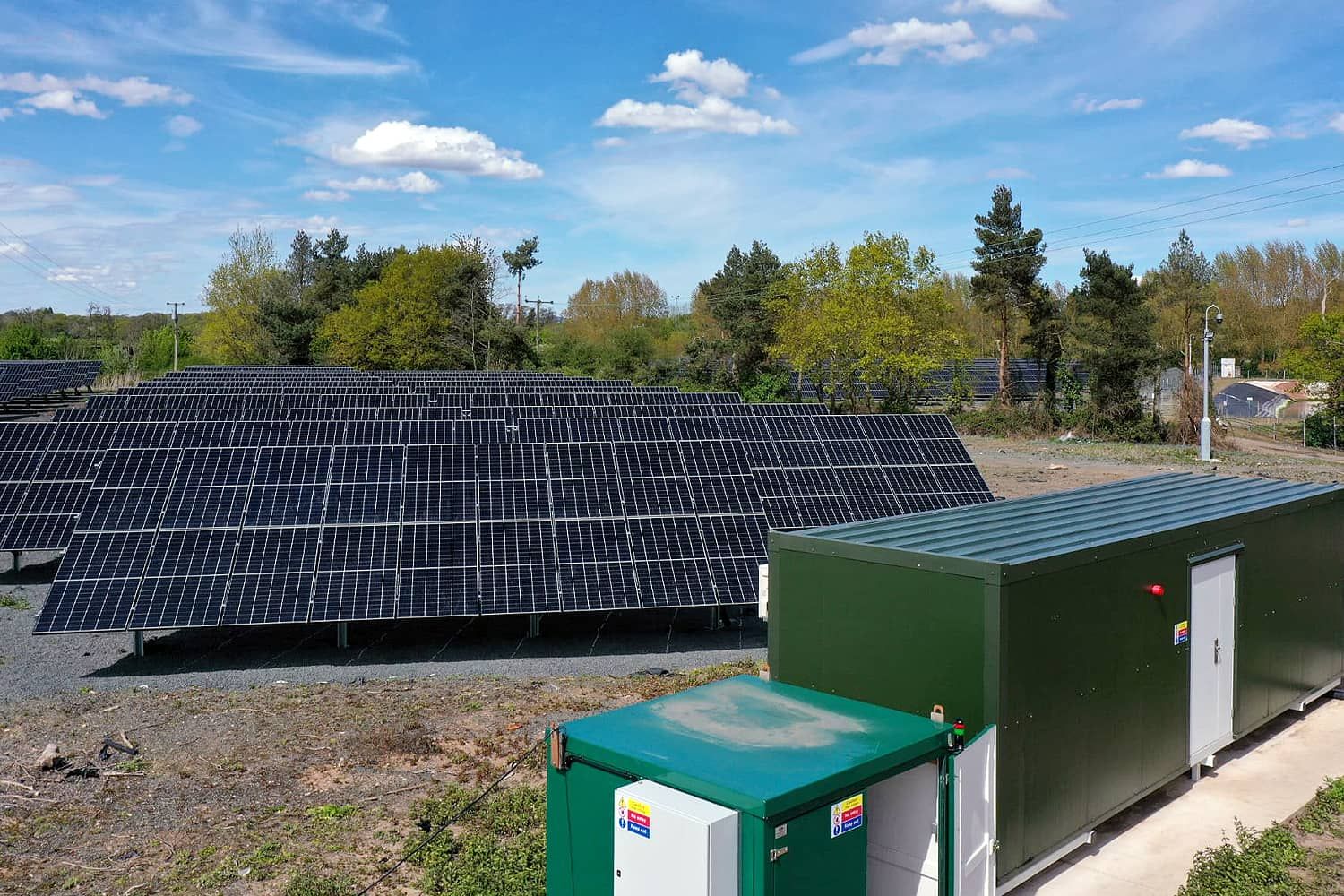
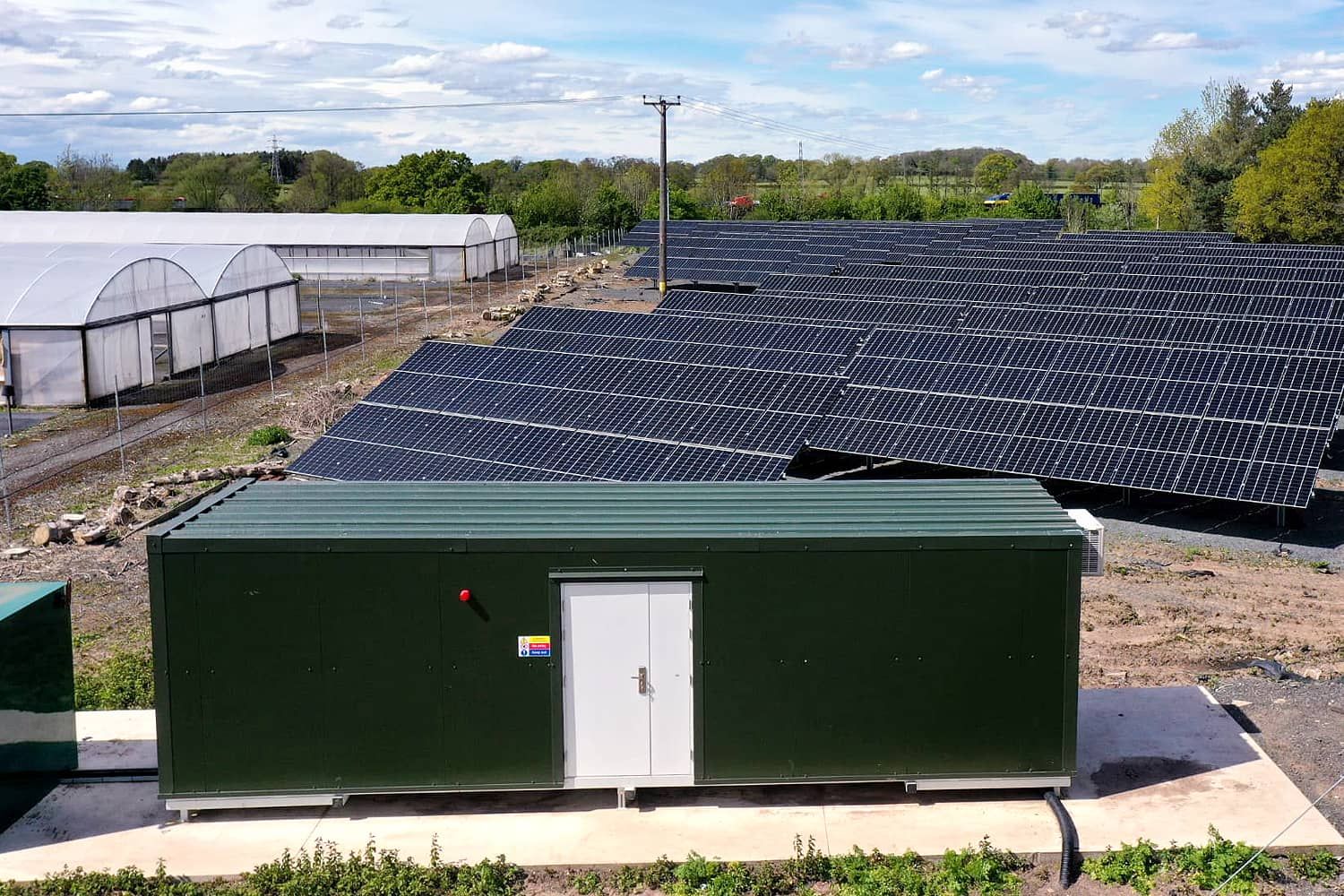
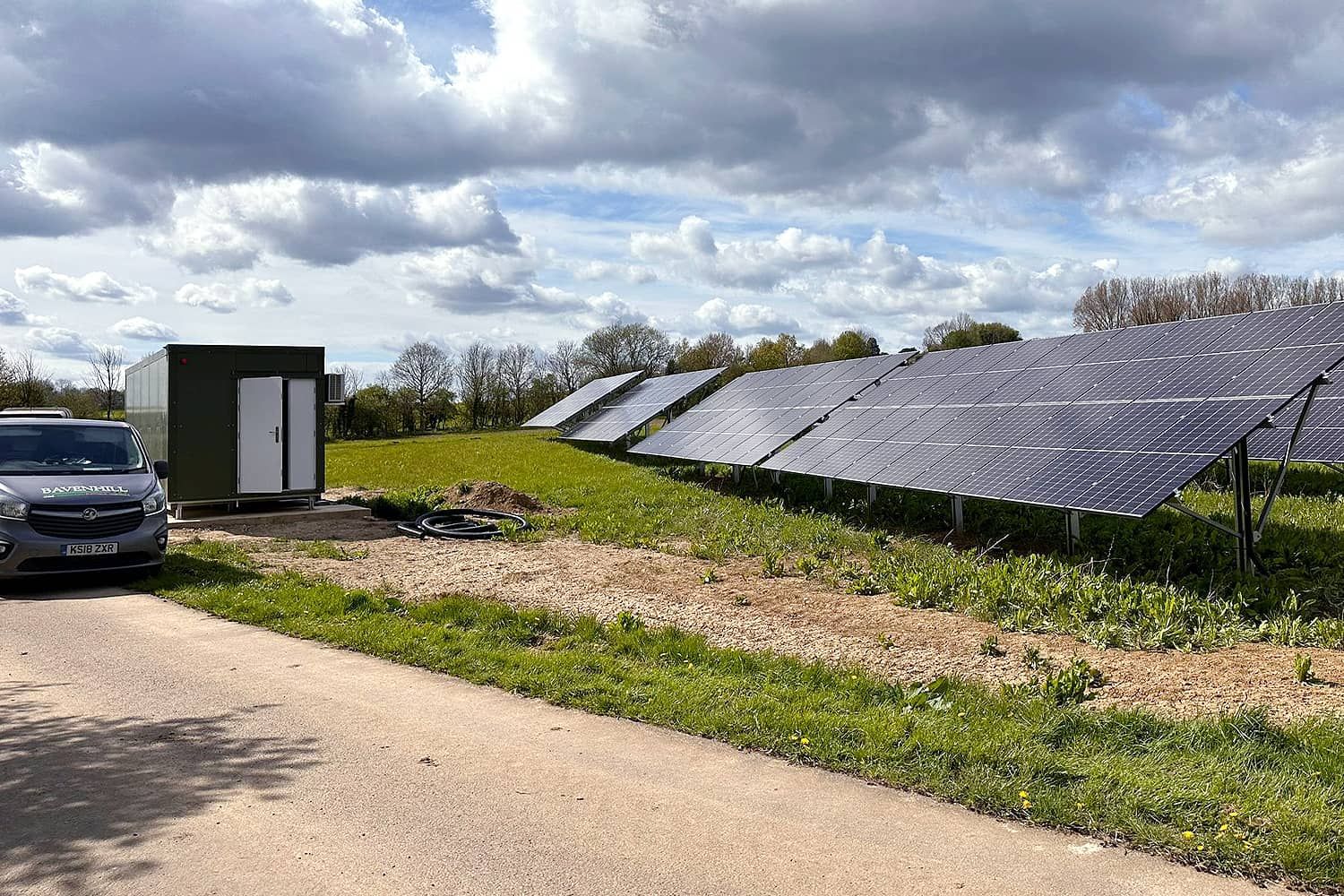
What long-term cost savings can farmers expect when using your BESS solutions, and how does this affect overall profitability?
There are many factors a farm business choosing renewable energy and battery energy storage solutions, from the surety of supply to backup power and, of course, impact on profitability. Put simply, BESS solutions positively address all three points, and the savings are significant. The solar and battery systems help offset the rising energy costs, and we saw a spike in interest when energy prices increased last year. Initially, we used BESS to make heat pumps more efficient, but with rising energy prices, the storage brings the added advantage of energy security.
For instance, when we started installing these systems four or five years ago, the payback period was around seven to eight years. Over the last couple of years, this has dropped to three to four years due to rising energy costs. Once the system has paid for itself, the savings directly contribute to the farm's profitability—sometimes cutting energy costs by half.
Every business these days want to play their part in sustainability, Mike, so in what ways does BESS contribute to sustainability and resource management on farms?
While batteries aren’t always considered “green,” they most certainly make renewable energy systems much more efficient. The key point is that batteries enable farmers to store excess energy, making renewable energy more sustainable and attractive. For example, a farm might generate 40% more energy daily than needed. Without a battery, they would send that excess back to the grid for pennies, only to buy it back at a much higher rate when needed.
So, while BESS might not be entirely green on its own, it helps make sustainable energy systems more efficient and financially viable, encouraging adoption and aligning with ESG objectives.
Thanks, Mike. It’s evident that BESS is a natural choice for energy supply resilience and cost savings, but how do they help farms improve efficiency and reduce operational downtime?
It’s a great question, and a constant worry for any manufacturing business, especially the Agri-sector. BESS systems are key in ensuring that energy generated during peak production times is stored and used when needed rather than wasted. For instance, if a farm generates excess solar power in the middle of the day, it can store that energy in the battery and use it later in the evening when demand spikes, reducing dependency on the grid.
This store-and-deploy approach not only improves efficiency but also reduces downtime. On top of that, it’s about having energy security—knowing you’re not reliant on external energy when costs fluctuate, or supply isn’t guaranteed brings significant peace of mind for business owners.

How do you think battery storage, like AlphaESS UK, helps farms handle rising energy costs and improve resource management?

Do you see battery storage as a game-changer for smaller or family-owned farms?
Let’s throw weather challenges into the mix, Mike. Can you tell how BESS systems improve farm resilience, particularly during extreme weather or power outages?
Yes, we all know the UK weather can throw some challenges to businesses, and battery storage systems can help. However, backup systems for power outages require a different approval process, which include Safety certifications which must meet specific electrical safety standards. Along with and grid compliance, which is approval from the local Distribution Network Operator. We’re starting to see more interest in off-grid solutions, where farms can use solar and batteries to operate independently - particularly useful for remote farms that don’t have strong grid connections.
In some cases, farms may have a small grid connection that trickle-charges the battery. At the same time, the rest of the system operates off-grid, providing commercial-grade power where it’s needed, which is just one way that battery systems improve resilience.
Looking toward the future, Mike, do you think battery storage will become an essential asset for farms in the future?
What trends are you seeing in adopting energy storage in agriculture, and how do you think it will evolve?
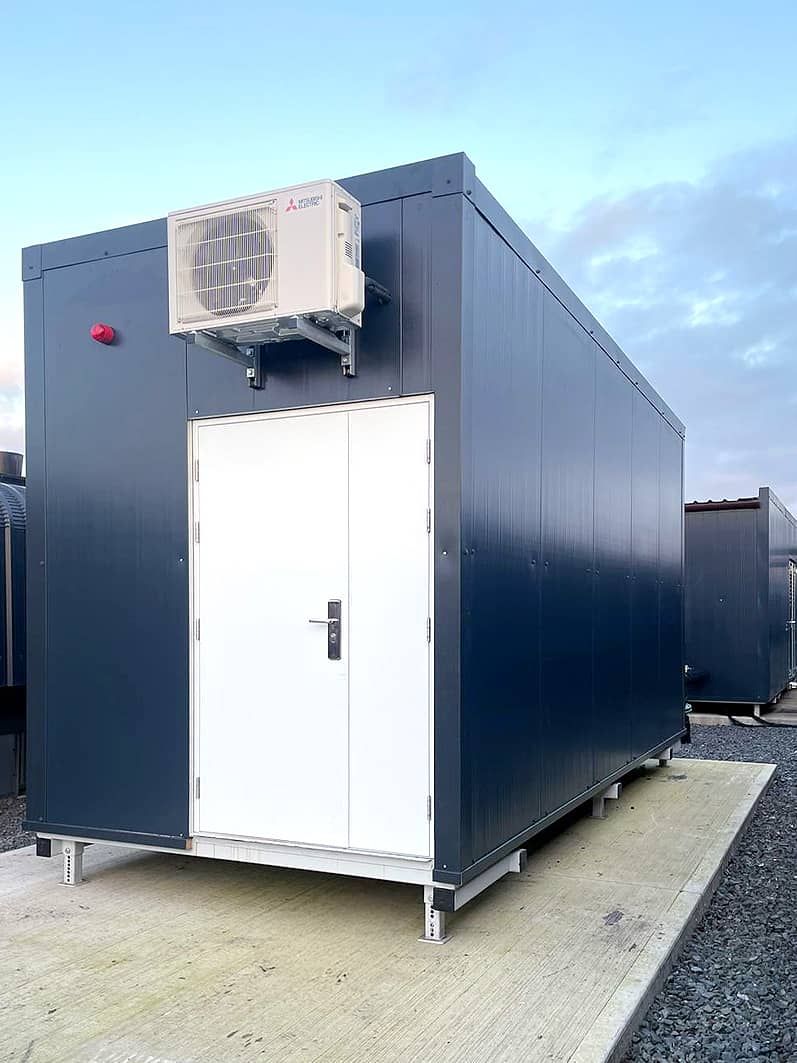
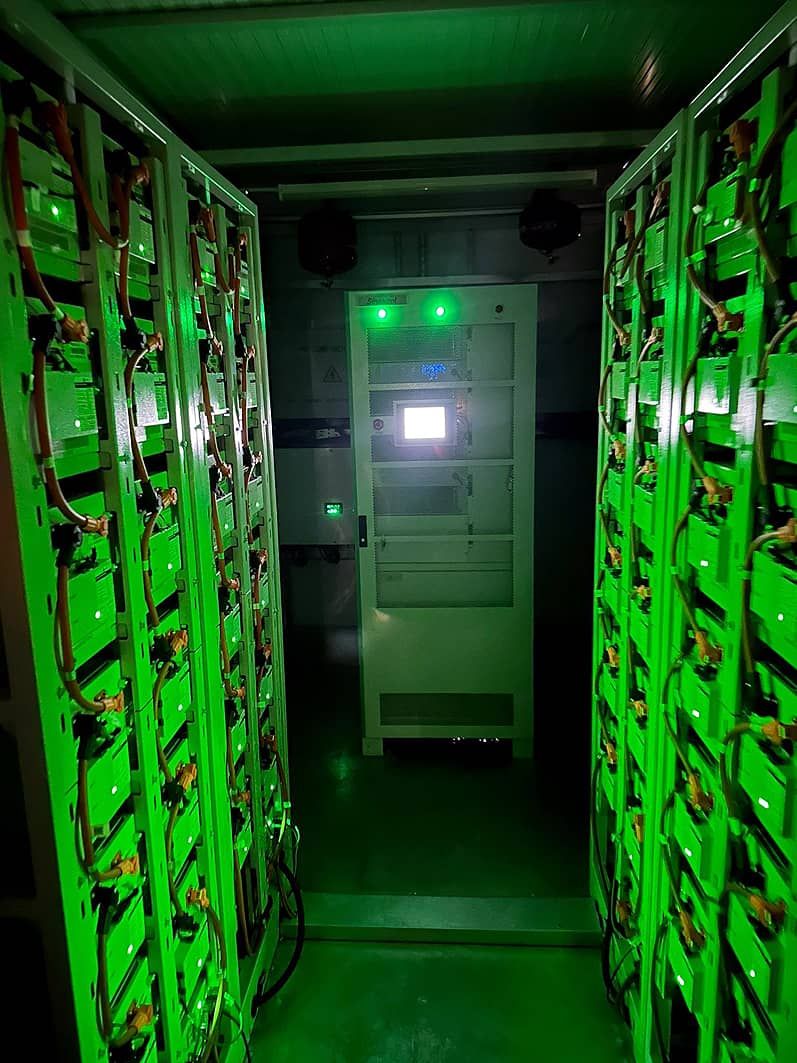
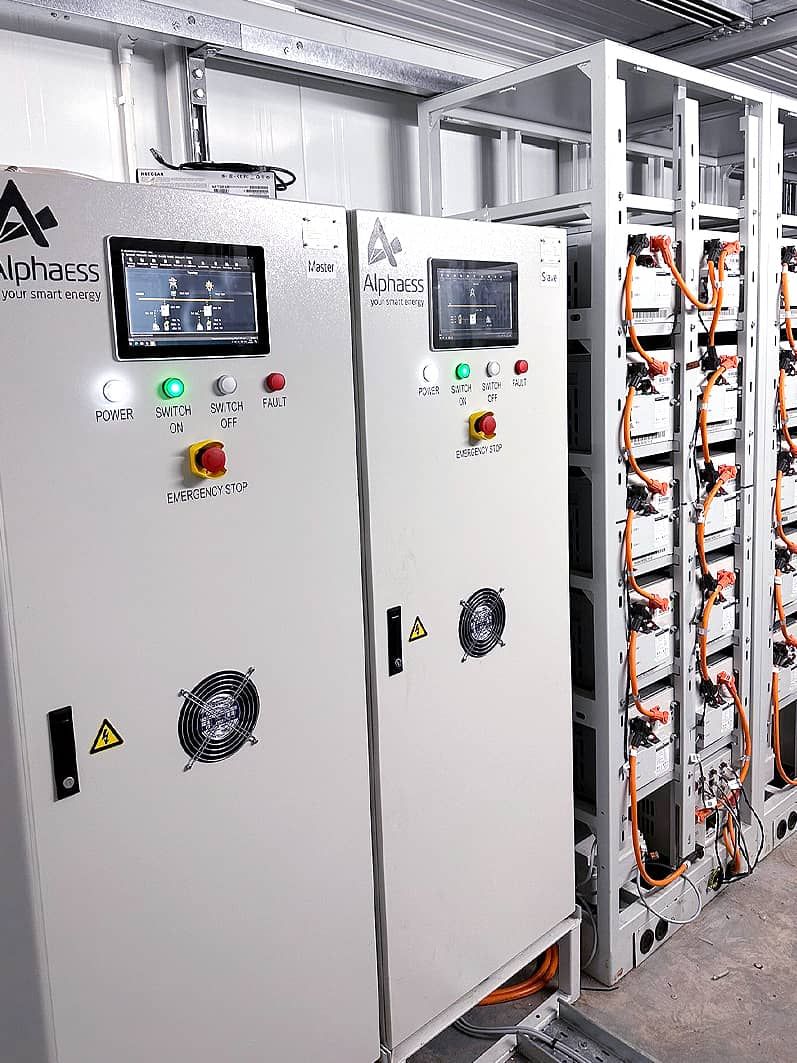
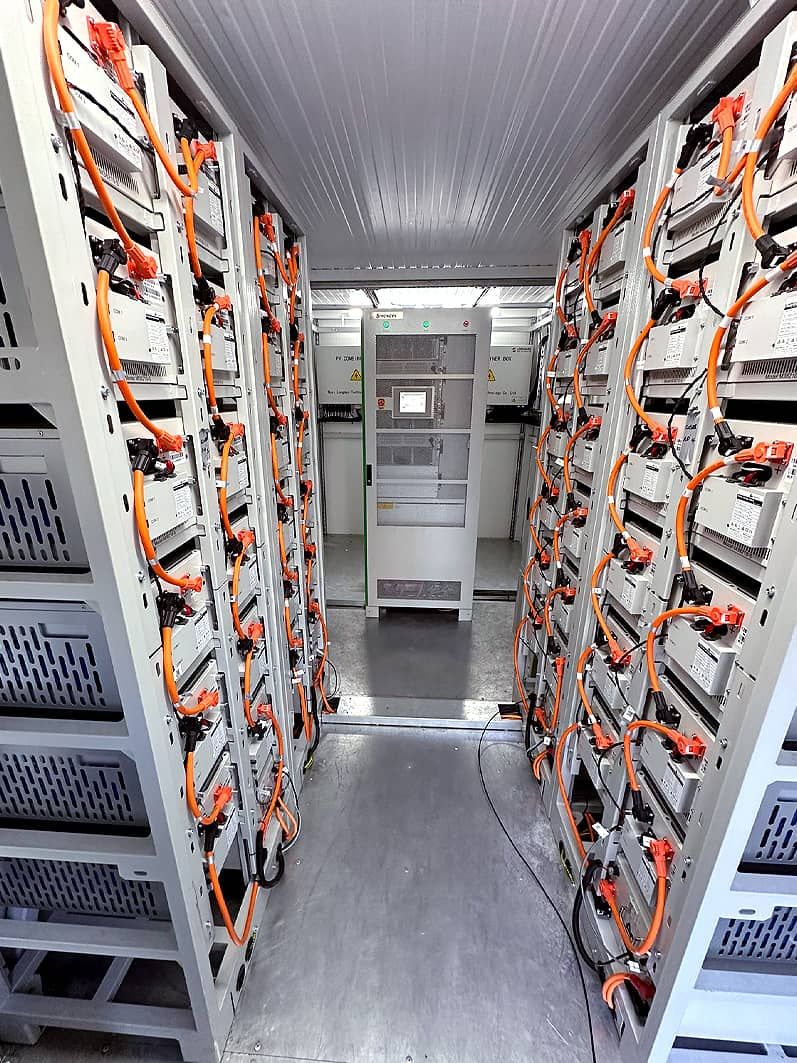
What about the Government’s role? Do national policies or incentives influence farmers' decisions to adopt BESS technology?
What would you say to someone considering using AlphaESS for the BESS requirements?
AlphaESS UK BESS are scalable and provides all the functionality needed for the solutions we require to support our wide range of customers. The BESS supply marketplace is crowded, but AlphaESS UK stands out for the quality of its products, excellent customer service and technical support. If we need any help, they are always there to provide it, which is invaluable to our business, and our relationships with our customers.
If you’re interested in working with us or want to learn more about BESS in the farming industry, call 0330 043 2610 or read more on our website.
